Never far from Rome III
The River Thames
I was thinking of very old times, when the Romans first came here, nineteen hundred years ago—the other day… […] Imagine the feelings of a commander of a fine—what d'ye call 'em?—trireme in the Mediterranean, ordered suddenly to the north; run overland across the Gauls in a hurry; put in charge of one of these craft the legionaries—a wonderful lot of handy men they must have been, too—used to build, apparently by the hundred, in a month or two, if we may believe what we read. Imagine him here—the very end of the world, a sea the colour of lead, a sky the colour of smoke, a kind of ship about as rigid as a concertina—and going up this river with stores, or orders, or what you like. Sand-banks, marshes, forests, savages,—precious little to eat fit for a civilized man, nothing but Thames water to drink. No Falernian wine here, no going ashore.
Joseph Conrad, Heart of Darkness
When visiting family in London if at all possible I choose to fly to London City, a small airport on the river by the old docks which were in the process of being redeveloped when I was a child. The Thatcherite reinvention of the Docklands saw the Thames leap from the melancholic fog-shrouded relic of the Heart of Darkness—the ghost of what was once the busiest port in the world—to an Eighties iteration of the Emerald City.
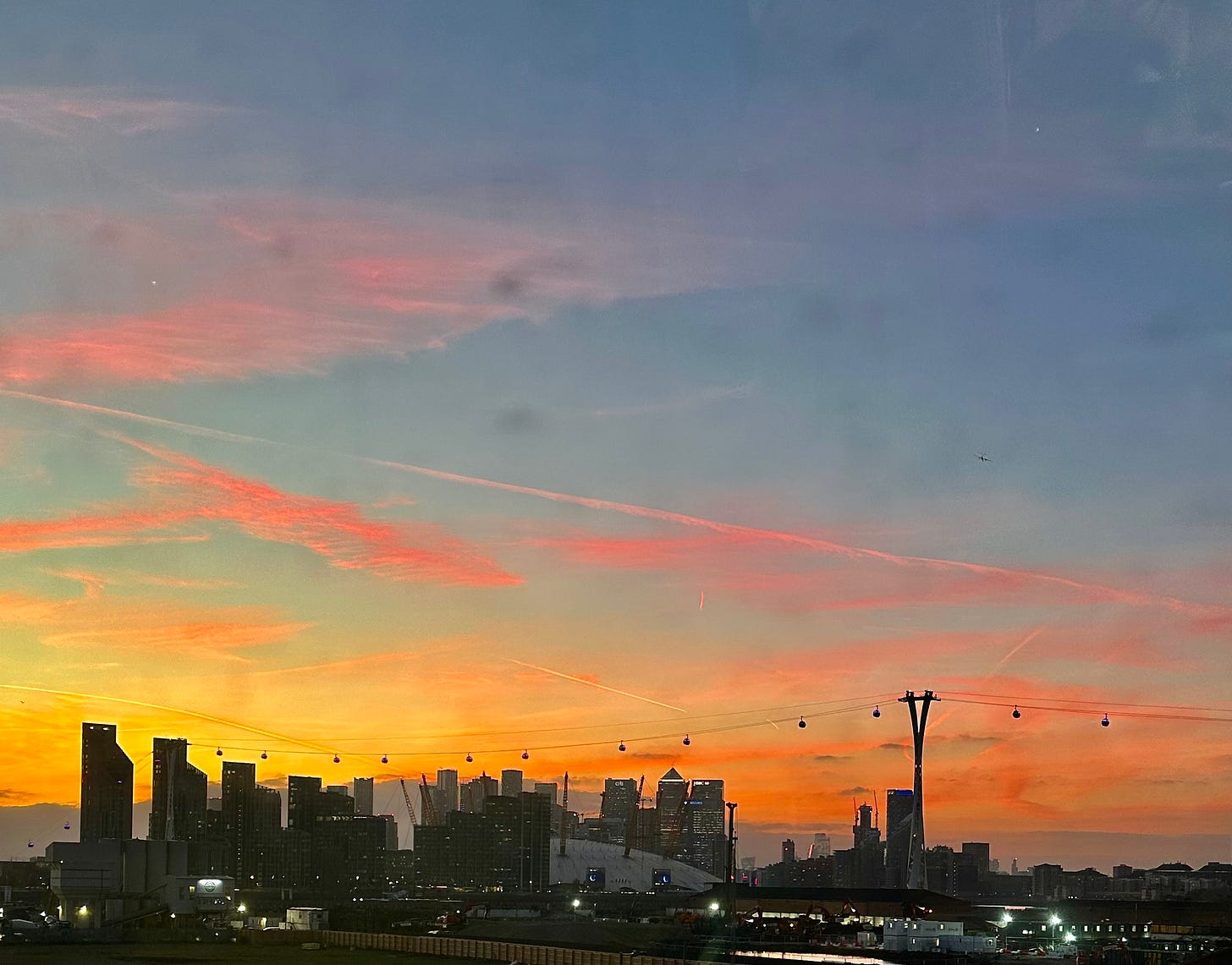
Arriving from Rome, the approach to London City follows the river from the muddy marshes of the sprawling Thames Estuary to those glittering towers of Mammon. Every time I fly over the Estuary I think of the first Roman sailors venturing into the maw of the river, as Conrad’s Marlow imagines:
They were men enough to face the darkness. And perhaps he was cheered by keeping his eye on a chance of promotion to the fleet at Ravenna by and by, if he had good friends in Rome and survived the awful climate. […] Land in a swamp, march through the woods, and in some inland post feel the savagery, the utter savagery, had closed round him—all that mysterious life of the wilderness that stirs in the forest, in the jungles, in the hearts of wild men.
Londinium was founded on the north bank of the Thames, at a bridgeable point of the river, in the years immediately after Aulus Plautius had led the successful conquest of Britain in 43, during the reign of Claudius. A timber drain datable to 47 found near the Bank of England gives a terminus ante quem for the settlement’s foundation.
Yesterday I walked eight kilometres or so along the Thames at high tide, the very end of the world. The river was the colour of old tea and the sky—as Conrad says—the colour of smoke or, as a Spanish friend of mine who lived for many years in England once memorably said, like being in Tupperware.
I and my walking companions paused for refreshment at The Mayflower pub at Rotherhithe, the place from whence the Mayflower sailed to Plymouth before crossing the Atlantic. Aulus Plautius, the Heart of Darkness, and the Pilgrim Fathers: a positively dizzying temporal kaleidoscope of colliding empires on this tidal river, so very different to the benevolent blond Tiber exalted by Virgil as protector of Aeneas.
I thought for the umpteenth time of what on earth those first Roman sailors must have made of it. As we walked past glittering towers and lumbering container barges I could swear I glimpsed them from the corner of my eye as they made that first foray upriver into the unwelcoming Heart of Darkness.


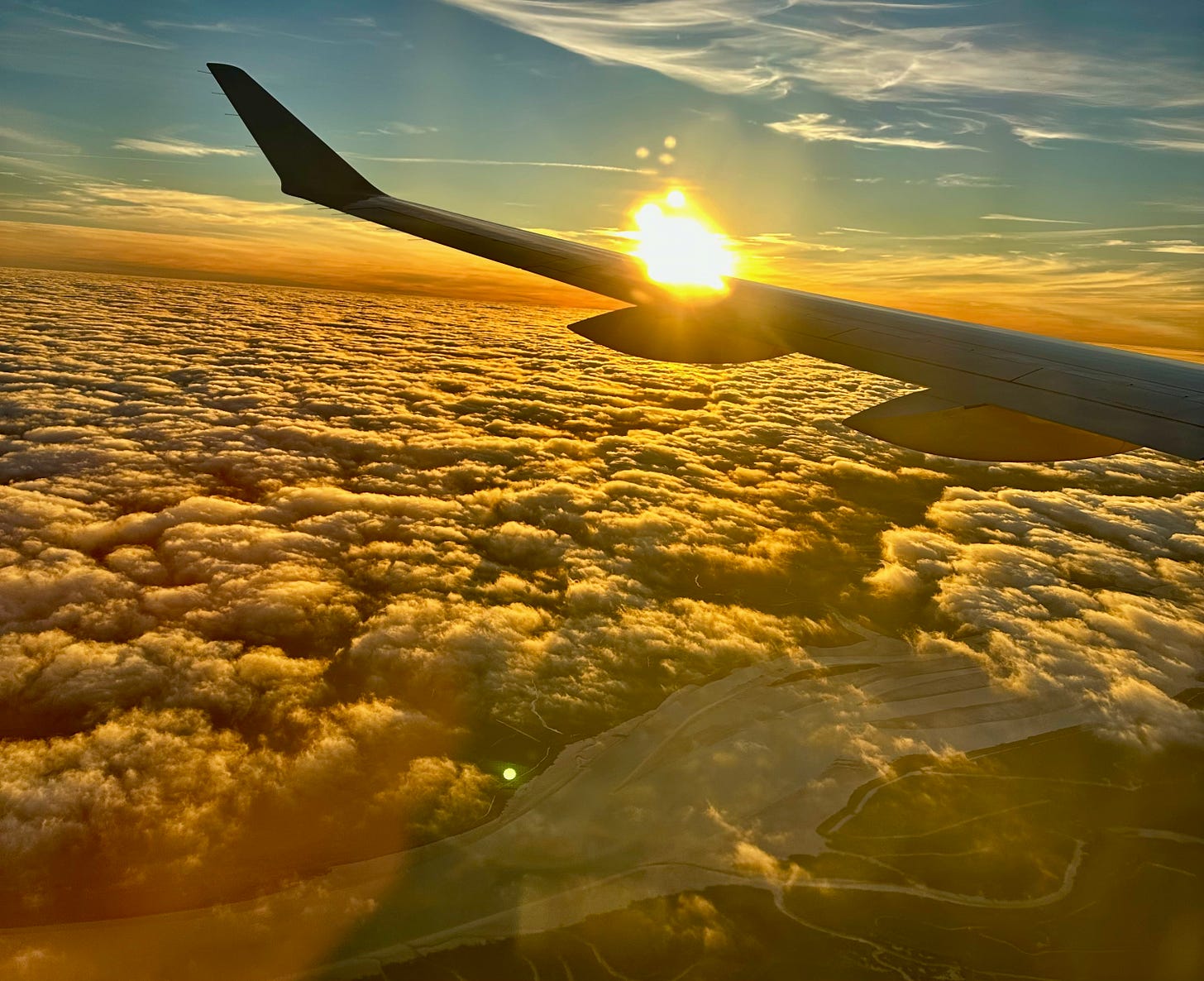
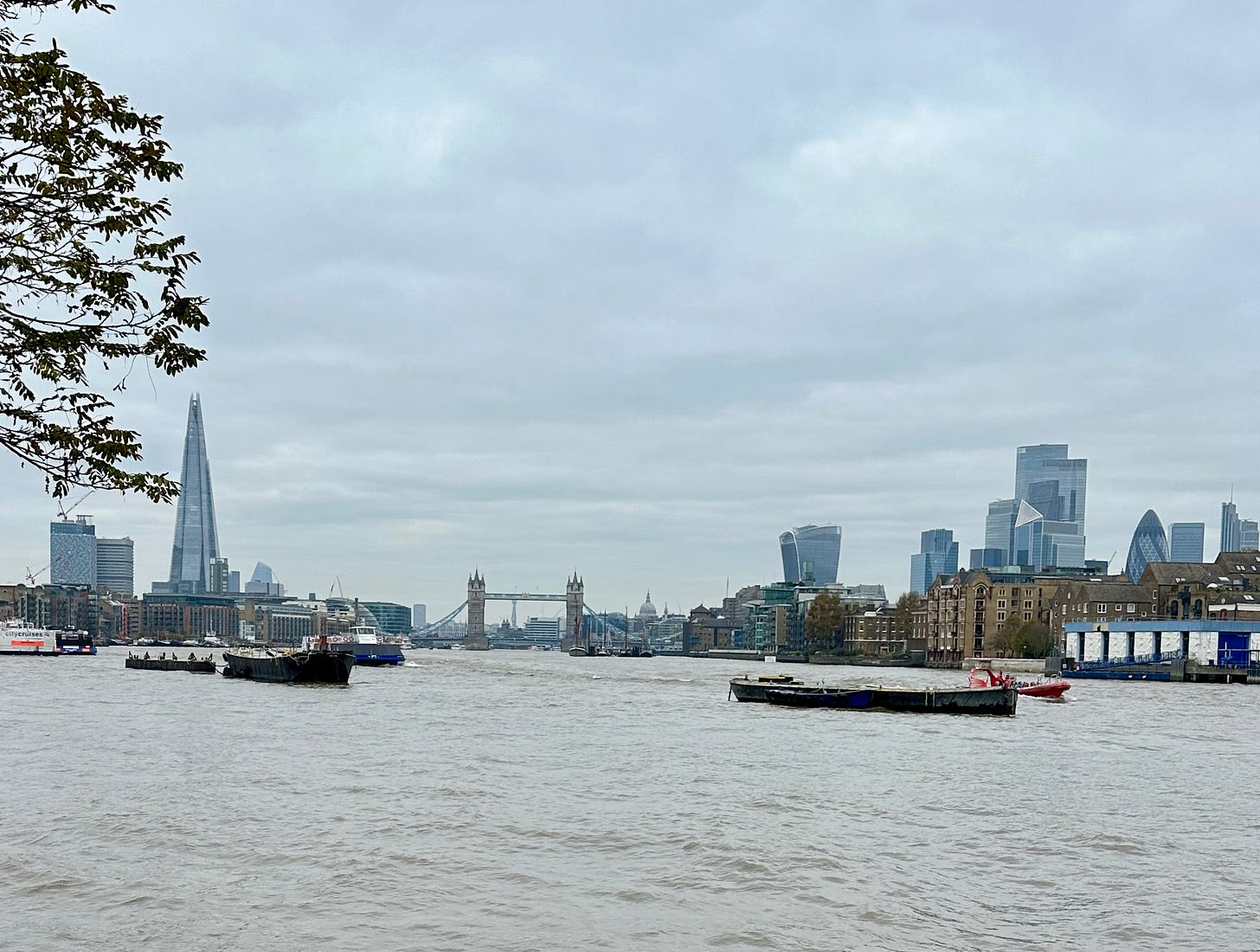
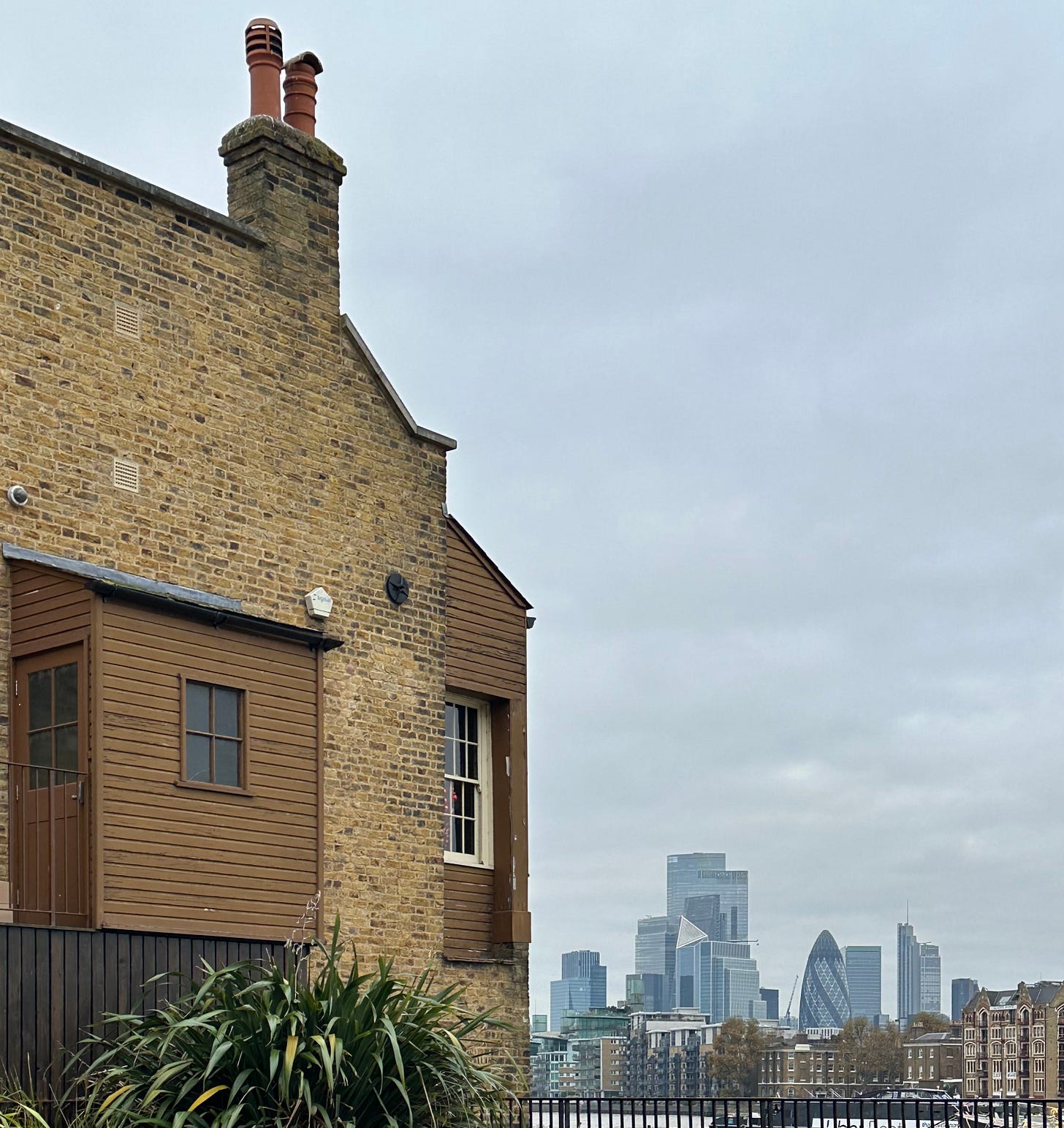
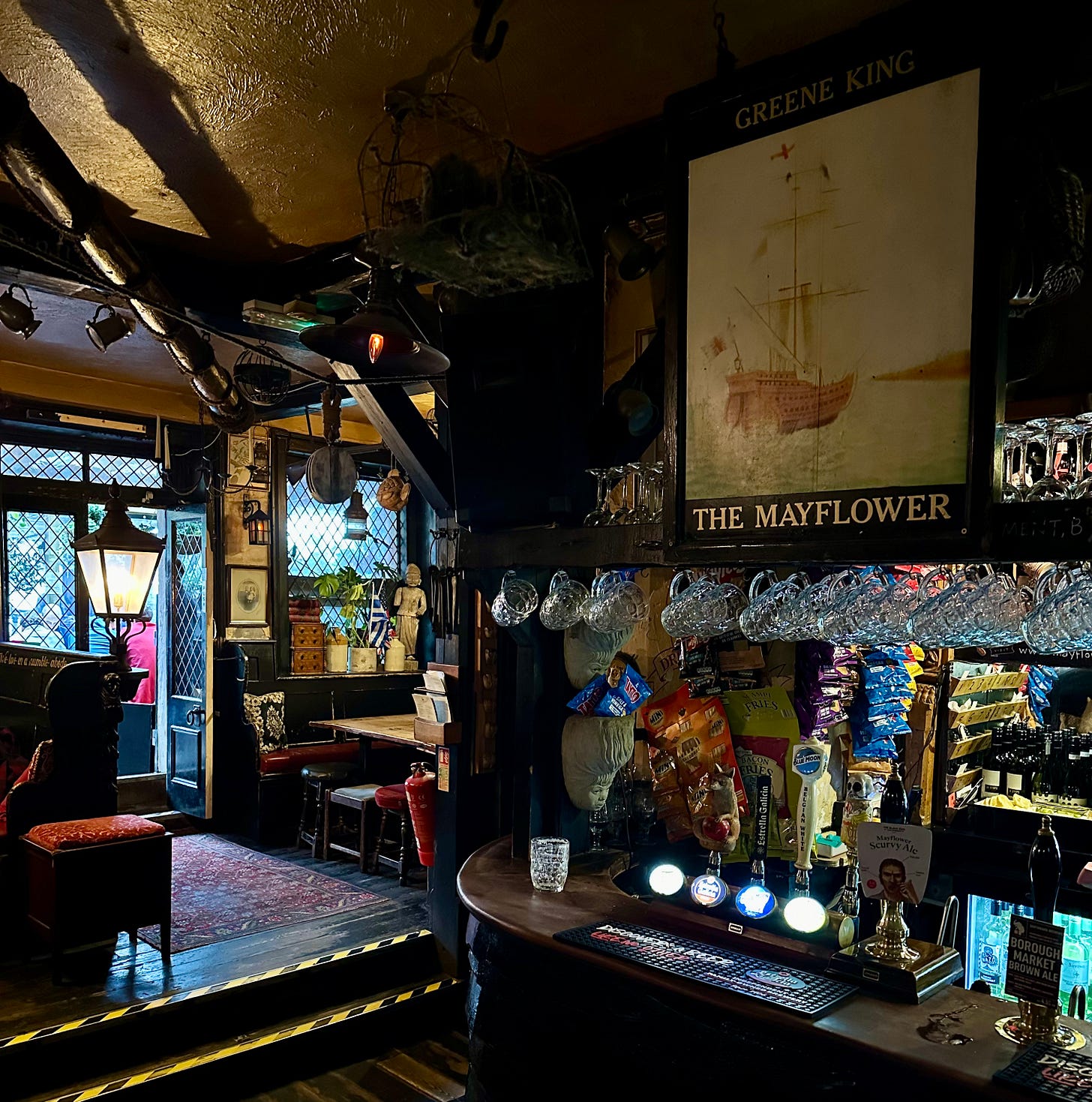
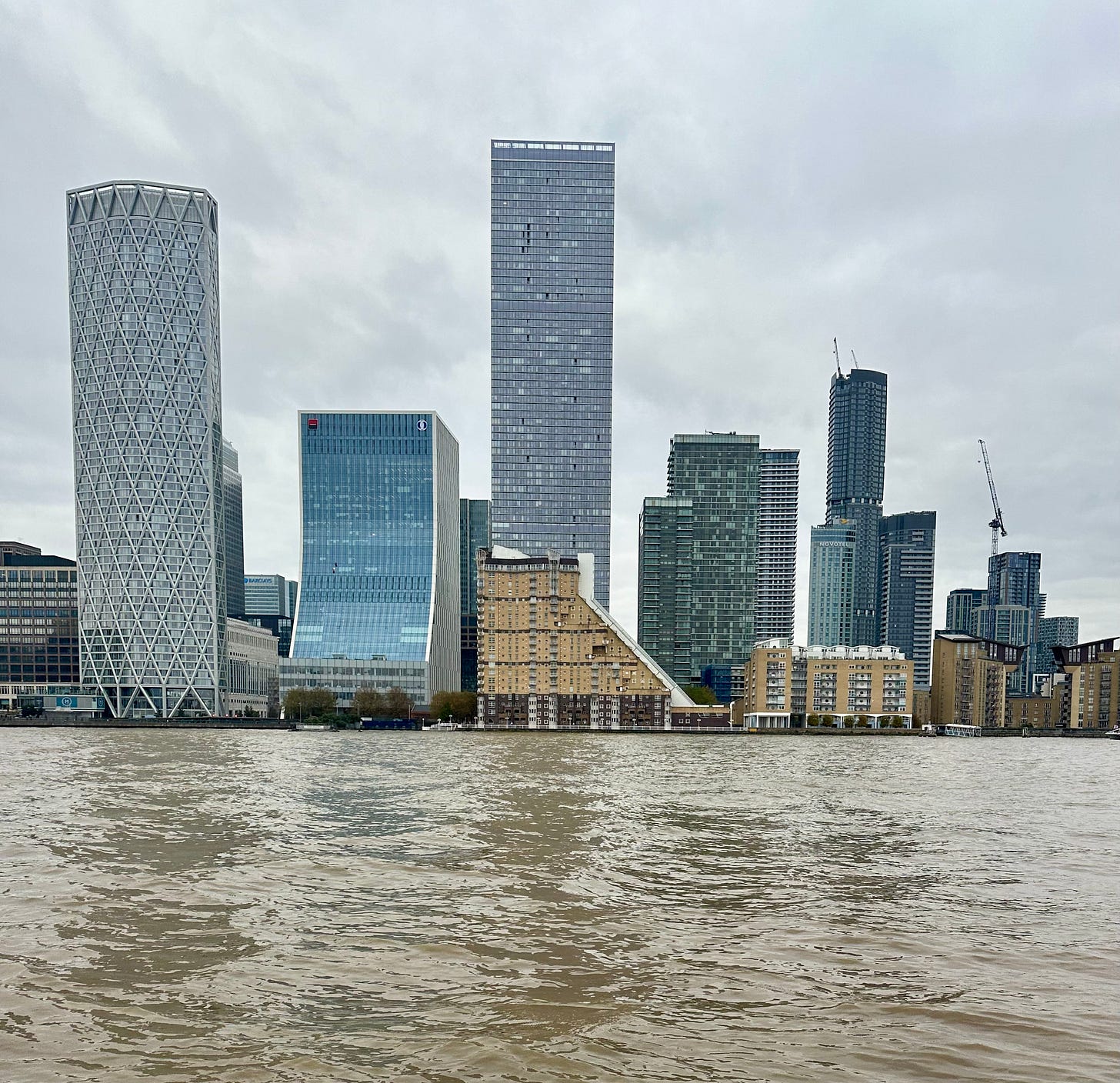
So enjoyable & fascinating to read Thank you so much
Very evocative, thank you.